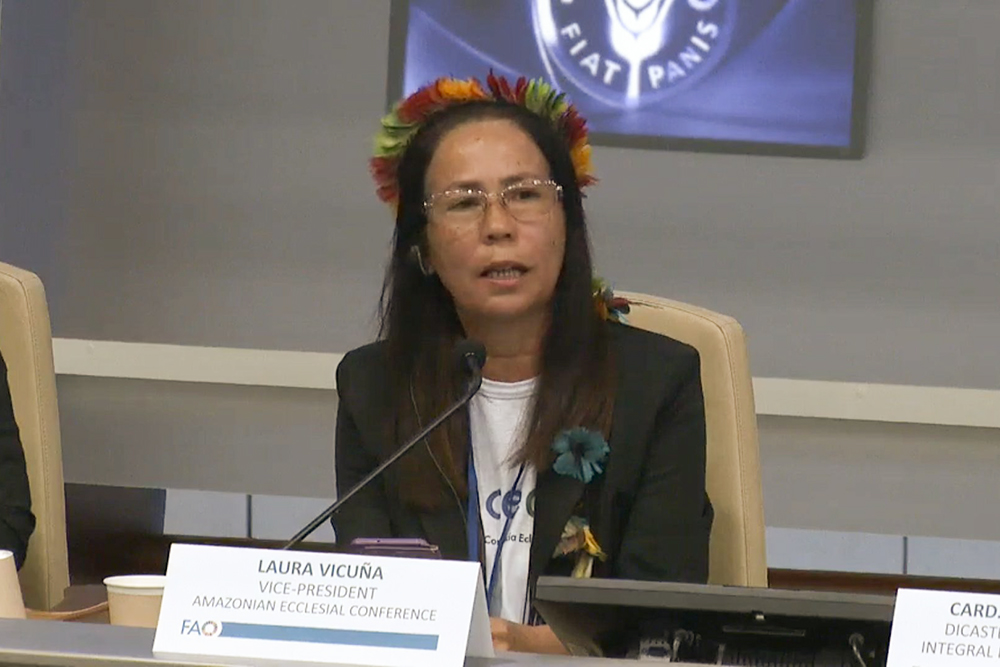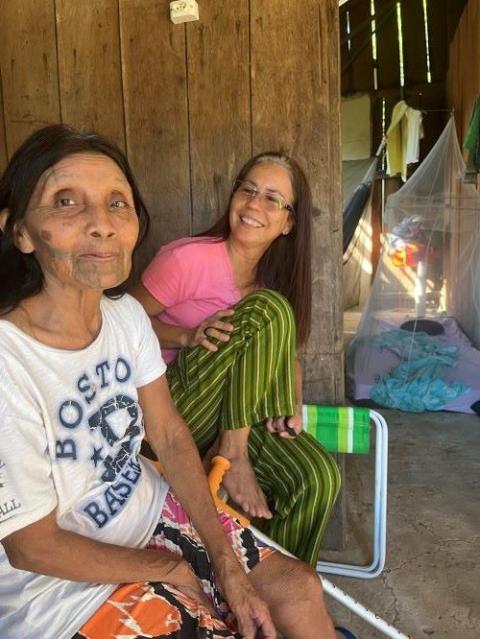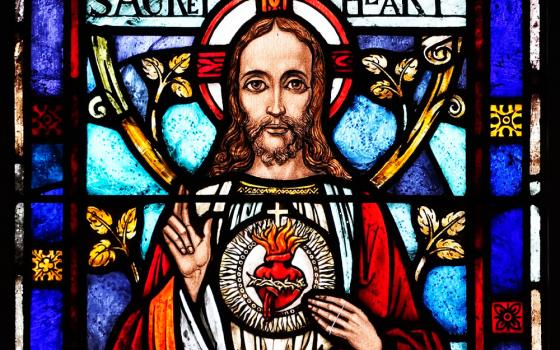
Franciscan Catechist Sr. Laura Vicuña Pereira Manso, who is a member of the Indigenous Kariri people and one of the vice presidents of CEAMA, speaks at an event on the Amazon at the headquarters of the U.N.'s Food and Agriculture Organization in Rome June 4. (CNS screenshot/FAO)
A leading religious sister in the Amazon region believes Pope Francis' recent interview that seemed to close the door to women deacons isn't the final word on the much-discussed topic that has repeatedly been raised during the ongoing synodal process.
"Francis' speech caused some perplexity, but an interview is not the magisterium of the church," Franciscan Catechist Sr. Laura Vicuña Pereira Manso told NCR via email. Her remarks come just weeks after an interview with CBS News where Francis said he was opposed to women deacons, if it's connected to the sacrament of holy orders.
"We're living through the second stage of a synod on synodality, and I know that it won't resolve all the necessary issues of change in the church," Pereira Manso added. "But it will open up ways for us to continue the conversation and for all of us."
Pereira Manso serves as vice president of the Ecclesial Conference of the Amazon (or CEAMA as it is known), which was created in 2020 following the 2019 Synod of Bishops for the Amazon. Earlier this month, she traveled to Rome for several events to mark the five-year anniversary of the Amazon synod, including a meeting with the pope.
"We have important changes underway in the church," said Pereira Manso afterward. "I always say that 'Grandpa Francis' has brought a springtime air to the church."
Advertisement
Before many of the specific doctrinal questions can be considered, she said, it requires a "conversion" of the church's way of being. This includes the pope, the laity and everyone in between.
Change, she noted, bothers many people "who want to continue in their privileges and don't want to be a church that is the people of God and a sign of the kingdom."
For years, Pereira Manso — along with other religious sisters — has worked in the remote parts of the nine-nation Amazon region where there are few priests and many faithful lack regular access to the sacraments.
While the pope may be hesitant to back the restoration of the female diaconate, much of the work that these sisters already do is that of diaconal ministry. CEAMA is the first-of-its-kind ecclesial assembly to include women in a leadership position, and regardless of what is officially decided during the ongoing synod on synodality — or after — she says it will continue.

Sr. Laura Vicuña Pereira Manso (back) has accompanied matriarch Katiká and the Karipuna people for more than seven years in defense of their human rights and their care of the Amazon rainforest in Karipuna territory, Brazil. She has been the presence of the Catholic Church in this remote territory where there are no priests. (Ellie Hidalgo)
"I continue to believe in the service that we women offer the church and the mission of being bridges and not letting prophecy fall," she said. "This is how we will continue to serve the people of God, who live on the margins, on the peripheries and in the cellars of humanity, in defense of life, the earth and rights."
Following the Amazon synod, which Pereira Manso participated in as an auditor, she said the church in the Amazon has "reinvented ourselves," through a range of new proposals that include the development of an Amazon liturgical rite, expanded ministries, intercultural dialogue and bilingual education.
On June 3, both the Ecclesial Conference of the Amazon and the Pan-Amazonian Ecclesial Network met with Francis for what she described as a "historic" summit between the pontiff and the two organizations.
"This meeting reinforced synodality and ongoing collaboration for social and environmental justice, as well as seeking new paths for the church and for an integral ecology," she said.
While Pereira Manso said the question of the female diaconate was not on the agenda of that meeting, she said that the topic of women's ministries had been explicitly discussed a year earlier during another meeting with the pope.
"He told us that there was no turning back from the changes underway" and noted that the work is now in motion for the church to have a fuller discernment on these questions.
And for now, she said the ambiguity does not discourage her.
As she looks ahead to the reconvening of the synod on synodality, Pereira Manso said it's her prayer that there will be an increased openness on the "topics where the church still lacks consensus and transparency, so that they are in fact the action of the Divine Ruah and not the fear of moving into deeper waters."








